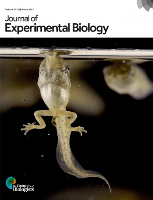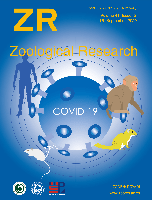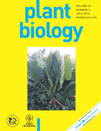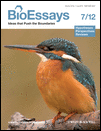
INTEGRATIVE AND COMPARATIVE BIOLOGY
Scope & Guideline
Integrating Research for a Holistic View of Biology.
Introduction
Aims and Scopes
- Integrative Organismal Biology:
The journal emphasizes studies that integrate multiple biological disciplines, providing a comprehensive understanding of the mechanisms underlying organismal function and diversity. - Comparative Biology:
Research that compares different species or populations to identify evolutionary patterns and functional adaptations is a core focus, allowing insights into evolutionary processes and ecological interactions. - Mechanistic Studies:
Investigations into the physiological and biochemical mechanisms that drive behavior, development, and ecological interactions, particularly those that can be replicated or modeled in laboratory settings. - Impact of Environmental Change:
Research addressing how organisms adapt to changing environments, including climate change, pollution, and habitat modification, is increasingly highlighted, reflecting global ecological concerns. - Interdisciplinary Approaches:
The journal encourages interdisciplinary research that combines biology with technology, engineering, and computational methods to enhance understanding and applications in biological sciences.
Trending and Emerging
- Ecophysiology and Climate Adaptation:
Research focusing on how organisms physiologically adapt to climate change and environmental stressors is rapidly expanding, reflecting the urgency of understanding biological responses to global changes. - Microbiome Studies:
The exploration of microbiomes and their influence on host physiology, behavior, and ecology is increasingly prominent, showcasing the interconnectedness of organisms and their microbial communities. - Behavioral Ecology and Neuroecology:
Studies examining the neural underpinnings of behavior and how ecological contexts influence behavioral strategies are gaining prominence, emphasizing the importance of integrating neuroscience with ecological research. - Bioinformatics and Genomics:
The application of genomic tools and bioinformatics to study evolutionary processes, adaptation, and functional traits is increasingly common, reflecting advancements in technology and data analysis. - Conservation Physiology:
Research that combines physiological studies with conservation efforts is on the rise, focusing on understanding the physiological basis of resilience and vulnerability in species facing environmental changes.
Declining or Waning
- Traditional Morphological Studies:
Research focused solely on morphological characteristics without integrating ecological or evolutionary contexts appears to be less frequent, as the field moves towards more integrative approaches. - Basic Taxonomy and Systematics:
While still important, the number of papers dedicated to purely taxonomic revisions or descriptions has diminished, with a shift towards studies that connect taxonomy with functional and ecological implications. - Laboratory-Based Studies Only:
There is a waning interest in studies that do not incorporate field data or real-world applications, as researchers increasingly seek to contextualize their findings within broader ecological systems. - Undergraduate-Focused Research:
The emphasis on purely undergraduate research experiences without direct implications for broader biological questions is decreasing, as more focus is placed on impactful research that bridges education and real-world issues.
Similar Journals

JOURNAL OF EXPERIMENTAL BIOLOGY
Innovative Research Shaping the Future of BiologyJOURNAL OF EXPERIMENTAL BIOLOGY, published by COMPANY BIOLOGISTS LTD, stands as a cornerstone in the fields of Animal Science, Aquatic Science, Ecology, Insect Science, and Physiology. With a rich history dating back to 1945, this esteemed journal has continually provided a platform for high-quality research, evidenced by its impressive Q1 rankings across multiple categories in the 2023 Journal Citation Reports. Located in the United Kingdom, it serves an international audience, offering critical insights and advancements in various biological sciences. As a non-open access journal, it provides rigorous peer-reviewed articles that contribute profoundly to our understanding of biological processes and their implications. With an extensive reach among researchers, practitioners, and academia, the JOURNAL OF EXPERIMENTAL BIOLOGY is not only a repository of knowledge but also a catalyst for ongoing research and innovation in experimental biology.

HOMO-JOURNAL OF COMPARATIVE HUMAN BIOLOGY
Unveiling Insights into Human DiversityHOMO - Journal of Comparative Human Biology is a prestigious academic journal dedicated to advancing the field of comparative human biology, offering a platform for researchers, professionals, and students to disseminate cutting-edge findings. Published by E Schweizerbart'sche Verlagsbuchhandlung in Germany, this journal has been a crucial resource since its inception in 1950, featuring a rich archive of studies until 2023. It holds a Q3 quartile ranking in Anthropology and a Q4 quartile ranking in Miscellaneous Medicine, reflecting its significance and influence within the academic community. Although not an Open Access journal, it provides a wealth of robust research that intersects with various disciplines within the anthropological sciences. Researchers looking for a wide array of comparative studies and insights into human biology will find HOMO an invaluable addition to their scholarly resources.

ZOOLOGICAL RESEARCH
Championing Conservation and Ecological InsightsZoological Research, published by Science Press, stands as a premier open-access journal in the fields of animal science, zoology, and ecology. Since its inception in 1980, it has fostered an inclusive platform for innovative research and dialogue within the scientific community, enabling researchers from across the globe to share their findings and insights. The journal's significant impact is underscored by its classification in the Q1 quartile across multiple categories, including Animal Science and Zoology, Ecology, and Nature Conservation for 2023, as well as its impressive rankings within Scopus, placing it in the top tier of its respective fields. Situated in Beijing, China, Zoological Research not only contributes to advancing knowledge but also emphasizes the critical importance of conservation practices in today’s rapidly changing ecosystems. With its commitment to open access, researchers, educators, and students alike benefit from immediate, unrestricted access to vital scientific information, making it an essential resource for anyone involved in the biological sciences.

PLANT BIOLOGY
Nurturing Insights into Ecological SignificancePLANT BIOLOGY is a prestigious academic journal published by Wiley, dedicated to advancing knowledge in the fields of plant science, ecology, and evolutionary biology. With an impressive impact factor and ranking in the Q1 category for Ecology, Evolution, Behavior and Systematics, and Plant Science as of 2023, it stands at the forefront of research dissemination. The journal encompasses a broad scope of plant biology topics, providing a critical platform for researchers to share innovative findings and foster interdisciplinary collaboration. Available in both print (ISSN: 1435-8603) and online formats (E-ISSN: 1438-8677), it ensures accessibility through open access options. As a crucial resource for professionals, researchers, and students alike, PLANT BIOLOGY cultivates a deeper understanding of plant systems and their ecological significance, making it an essential addition to the library of anyone dedicated to the study of biology and the environment.

Genes
Advancing genetic knowledge for a healthier tomorrow.Genes is a leading open-access journal published by MDPI that focuses on advancing the field of genetics and genomics. Established in 2010 and based in Basel, Switzerland, this journal has made significant strides in promoting innovative research in both clinical genetics and molecular biology. With an impact factor reflecting its relevance and quality, Genes has been classified in the Q2 quartile for Genetics and the Q3 quartile for clinical Genetics as of 2023. The journal provides an accessible platform for researchers, professionals, and students to disseminate their findings and explore emerging trends across the genetics landscape. Accessible online since its inception, Genes allows for continuous engagement and collaboration within the scientific community, fostering a deeper understanding of genetic mechanisms and their implications in health and disease.

CANADIAN JOURNAL OF ZOOLOGY
Fostering Knowledge in Ecology and Evolutionary ScienceWelcome to the Canadian Journal of Zoology, a leading academic journal in the fields of Animal Science and Zoology as well as Ecology, Evolution, Behavior and Systematics. Published by Canadian Science Publishing since 1965, this esteemed journal serves as a vital platform for researchers, professionals, and students to disseminate and engage with significant findings in zoological and ecological research. With an impact factor placing it in the Q2 category and rankings reflecting its influence (201/490 in Animal Science and Zoology; 372/721 in Ecology), the journal is committed to advancing the understanding of animal biology and environmental interactions. Although currently not an open access publication, it provides comprehensive resources and studies that are crucial for the academic community. Based in Ottawa, Canada, the journal continues to push the boundary of knowledge right up to 2024 and beyond, making it an essential resource for anyone dedicated to the life sciences.

BIOESSAYS
Catalyzing Scientific Progress in Biochemistry and GeneticsBIOESSAYS, published by WILEY, is a leading academic journal dedicated to the dynamic fields of biochemistry, genetics, and molecular biology. With an impressive impact factor and recognized as a Q1 journal in its category for 2023, it ranks 49 out of 221 in the Scopus database, placing it within the 78th percentile among its peers. Since its inception in 1984, BIOESSAYS has served as a vital platform for researchers, professionals, and students, facilitating the dissemination of pivotal findings, innovative theories, and review articles that shape the current understanding of biological sciences. Although it does not offer open access, the journal remains key for those seeking to stay at the forefront of scientific discovery and discussion within this ever-evolving discipline. With its commitment to high-quality, peer-reviewed content, BIOESSAYS continues to influence future research directions and academic discourse.

JOURNAL OF THEORETICAL BIOLOGY
Exploring the Frontiers of Biological TheoryJOURNAL OF THEORETICAL BIOLOGY, published by Academic Press Ltd - Elsevier Science Ltd, stands as a pivotal source of scholarly research in the domains of theoretical and applied biological sciences. Since its inception in 1961, this esteemed journal has contributed significantly to the advancement of knowledge across various fields, including agricultural sciences, applied mathematics, biochemistry, genetics, immunology, and medical research. With a commendable Q2 ranking in multiple categories for 2023, it showcases robust impact throughout the academic community, reflected in its high Scopus rankings, which place it in the top 25% of journals in several categories. The journal's commitment to fostering interdisciplinary research supports its objective of bridging theoretical frameworks with practical applications, making it an essential resource for researchers, professionals, and students alike. With its wide-ranging topics and a keen focus on innovation, the JOURNAL OF THEORETICAL BIOLOGY is indispensable for those seeking to explore the complexities of biological systems and their mathematical modeling.

Integrative Organismal Biology
Illuminating the Intricacies of Organismal InteractionsIntegrative Organismal Biology, published by Oxford University Press, is a premier open-access journal dedicated to exploring the intricate relationships and interactions among organisms across various biological disciplines. Since its inception in 2019, the journal has quickly established itself in the academic community, achieving prestigious Q1 rankings in 2023 across key categories including Animal Science and Zoology, Ecology, Evolution, Behavior and Systematics, and Plant Science. With an HIndex that reflects its impactful articles, Integrative Organismal Biology serves as a vital platform for researchers, professionals, and students to disseminate groundbreaking findings and advance the understanding of organismal biology. The journal fosters interdisciplinary collaboration and adheres to rigorous peer-review standards, ensuring high-quality content that is freely accessible to a global audience, thereby enhancing the visibility and impact of research in the thriving field of organismal biology.

Inland Water Biology
Connecting Research with Freshwater ConservationInland Water Biology is a distinguished peer-reviewed journal published by MAIK NAUKA/INTERPERIODICA/SPRINGER, focusing on the intricate interactions within freshwater ecosystems. With its ISSN (1995-0829) and E-ISSN (1995-0837), this journal has established itself as an essential resource for researchers and professionals in the fields of Aquatic Science and Ecology, evidenced by its consistent ranking in the Q3 category for both disciplines in 2023. Covering a wide array of topics related to the biology of inland waters, the journal aims to disseminate cutting-edge research findings and theoretical advancements that contribute to the understanding of aquatic environments and their ecological significance. Although it does not offer open access, its impact in the academic community is noteworthy, ensuring that published works undergo rigorous peer review. Researchers, professionals, and students alike will find valuable insights and innovative approaches within its pages, making Inland Water Biology a vital addition to their academic endeavors.